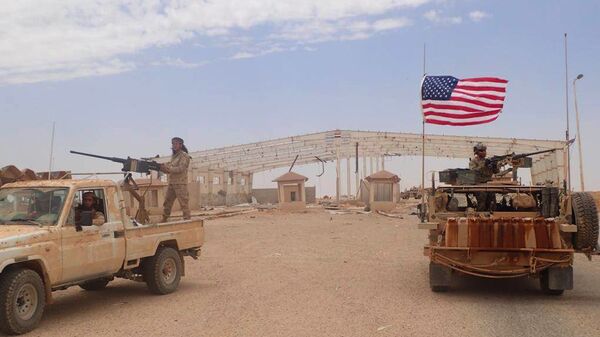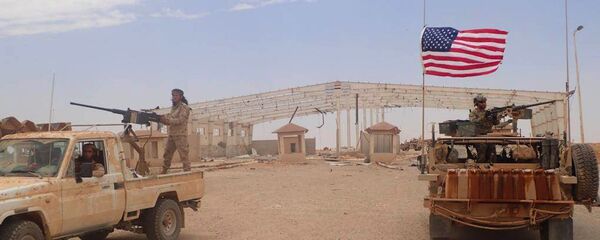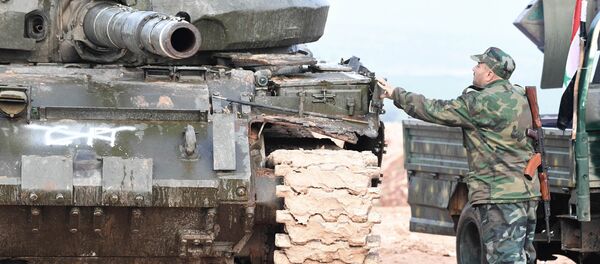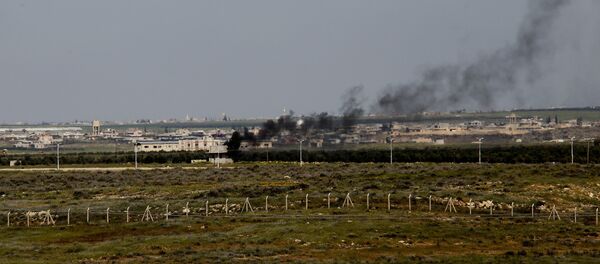The US State Department said that the strike was carried out as self-defense and was not indicative of an escalation.
"Nevertheless, the Pentagon’s strikes on Syrian forces have recently been regular, from the Shairat air base in April to al-Tanf in May and June. It does not seem to be self-defense," Russian political commentator Alexander Khrolenko wrote in an op-ed for Sputnik.
An operational headquarters of the allied forces of the Syrian government army, which includes the forces of Lebanon's Hezbollah as well as Iran, threatened the US-led coalition with a retaliatory strike following the attacks on Damascus positions.
Moscow slammed the coalition attack as a violation of international law. Russian Foreign Minister Sergei Lavrov said the move was an act of aggression, undermining Syria’s sovereignty and territorial integrity.
Strategic Region
The eastern part of the Damascus-Baghdad highway and border crossings are controlled by US-backed opposition forces. If the Syrian Army enters al-Tanf the strategic situation in the region will significantly change.
The US has a military base in al-Tanf, which facilitates the maneuvering of forces in Iraq and enables control of a large part of Palmyra province.
"If necessary forces from al-Tanf could quickly reach Damascus along the highway. There are just 270 kilometers between al-Tanf and the Syrian capital. It is unlikely that Washington has completely abandoned the military scenario for the Syrian crisis," Khrolenko wrote.
Meanwhile, the Syrian Army and its allies have launched an offensive in southern Syria, in a bid to reach the border with Iraq and Jordan near al-Tanf. At the same time, Syrian opposition forces moved from al-Tanf toward Deir ez-Zor. Iranian news agency Fars News reported that over 150 US and British military specialists entered Syria from Jordan to support the offensive.
Risk of Confrontation
The Pentagon said that the US-Russian channel on the safety of flights over Syria did not work out near al-Tanf due to "aggressive acts" of pro-Damascus forces. At the same time, in a press release, the coalition described the attack as a strike on Daesh terrorists.
"It is clear that in Syria the US tries to weaken the capability of the Syrian Army and wants to stop its offensive on al-Tanf. The coalition strikes on the Syrian Army and its allies were deliberate," the author pointed out.
Russia, Turkey and Iran are working on de-escalation zones in Syria and do not recognize so-called "de-conflict areas" unilaterally declared by the US.
"If the coalition further creates problems for the process of peaceful settlement open confrontation is possible near al-Tanf. If so the Syrian Army and Iran may attack coalition forces and US-backed opposition groups," Khrolenko concluded.





